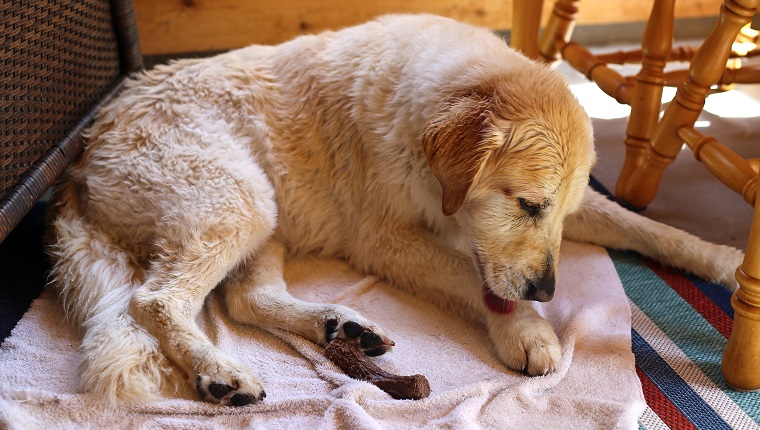Lick granuloma is a condition where a dog becomes obsessed with licking a part of the front of their legs. After too much licking, infection and inflammation can occur. It’s also known as acral lick dermatitis.
The cause of the condition is thought to be partly psychological. Dogs of a medium or larger size are often more prone to suffering from lick…




